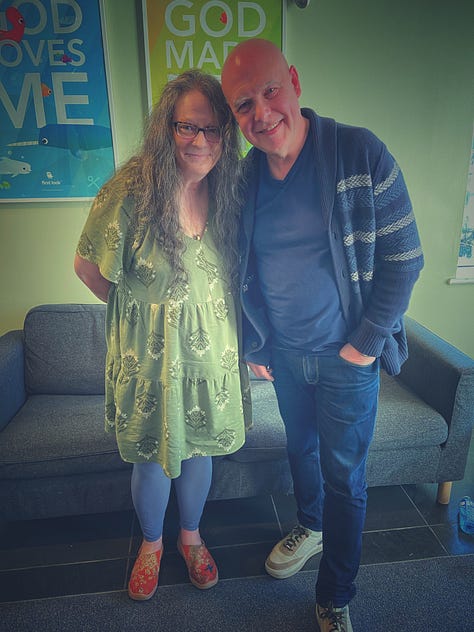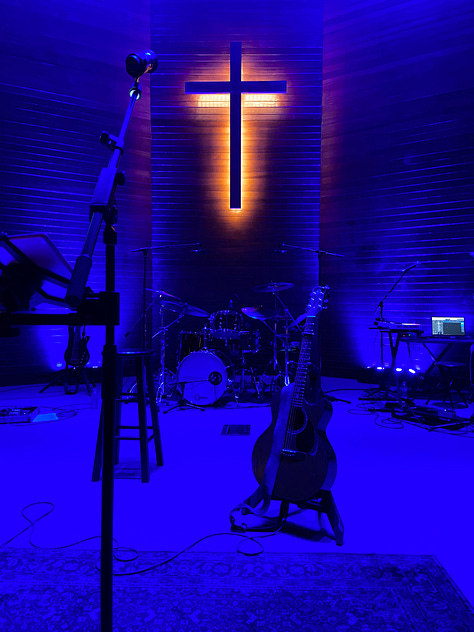Soul Smelting :: A Memoir
"Refiner’s Fire, My Heart’s One Desire”
“It isn’t you it’s me. I feel the way MT felt. I am in a dark hole. No light,”I wrote in a FB Messenger exchange with a friend on March 25th.
For 50 years, Mother Teresa endured "Such deep longing for God, so deep that it is painful, a suffering continual, and yet not wanted by God, repulsed, empty, no faith, no love no zeal," she wrote in a letter.
For 50 years, she lived in what she called "the darkness."
For 50 years, Mother Teresa forced herself to smile toward God, writing that her smile was "a big cloak which covers a multitude of pains." — Ethan Roe
Read that excerpt again. Sit with it, ponder its meaning. Mother Theresa, the epitome of love to many of us who knew of her work, often felt unwanted and unloved by God.
I had fallen into a particularly annoying hole of demoralisation and minor despair for a time. A variety of circumstances converged to create a dark cloud that hovered over my heart and stirred chaos into my inner sanctum. It felt difficult to shake. In my important relationships I could feel myself growing insufferably difficult and tamarind bitter to get along with—as though the asshole inside my head took over. I remembered Mother Theresa’s confession that she had long lost sight of the light of God, that she felt unwanted + unloved + forgotten by God. Mother Theresa called her smile towards God forced, a big cloak that covers a multitude of pains. Through much of Lent and into Holy Week and Easter weekend of 2024, I felt the way Mother Theresa described—thrust into the awful darkness of separateness.
Then Monday April 1st came along. A while ago I promised myself that every Monday at 10 am pacific time I would set aside time for a weekly lesson in a Jewish interpretation of The Psalms lead by my friend Rabbi Lee Weissman. Lee welcomes misfits and strays, he welcomes anyone who seeks God. Lee doesn’t need gang signs or membership, Muslims, Christians and Jews all flock to his zoom classes and together create a new understanding of the same unchanging Hashem. When you sit in his classes, you can feel that the man who taught Ben Shapiro high school just loves to teach.
I imagine that for such a person as Lee, teaching is a form of worship. Teaching draws the learner closer to knowledge, like a spark to the flame. If Lee will show up then so will I. Is this hope? I think so. Perhaps as long as I continue showing up at 10 am on Monday, I can keep Lee’s hope alive? Maybe I need to polish the lens I look through, in order to see hope through the fog of war? Maybe showing up is how I polish the lens, how I keep tarnish from forming? Maybe hope takes work, maybe it’s an act of resistance, as opposed to a feeling we passively wait for, to come and feed us life momentum.
I saw something in Psalm 17. I heard it through Lee’s voice.
One phrase spoken aloud sparked itself inside my brain, lit a fuse that travelled through my entire being and lit up the whole week, enabled me to overcome a block and complete a difficult + unwieldy project that has been ongoing for over a year. One phrase in Psalm 17, line 3 lit me up: though you try me with fire. Try me. Fire. In his Monday class, Seeing Yourself in the Psalms, Lee Weissman reads the Hebrew text and then teaches based on their meaning and the lesson he’s prepared. The Hebrew word tsaraph struck a chord of light inside me.
For the first time in years I thought about a bloke named Brian Doerksen. Brian wrote a song called Refiner’s Fire. In a video interview that’s now over 10 years old, Brian describes a God moment he had at a traffic light as a young man—a new dad—on his way home for a lunch break from his work as a church pastor. A piercing melody electrified his body, and spoke to him of purifying, in the way that a refiner’s fire purifies ore into gold. The song Refiner’s Fire emerged from that experience. In his work The Silmarillion Tolkien wrote a creation myth for Arda—Ainulindalë describes Tolkien’s vision of creation—in which a complex arrangement of musical harmonies contains the universal design of creation. Brian’s experience strikes me as quite Tolkienesque.



How does God speak to us? How does He speak through us? Do these two separate phenomena sometimes happen simultaneously? Music engages many regions of the brain at once —perhaps it’s fitting to think of Doerksen’s musical epiphany like the music of the Ainur—beyond hearing and into the depths and heights of sound.
Never doubt that you may be an answer to someone’s prayer. Never doubt that you may be an instrument of God. Maybe letting the Universal Programmer work through you sets in motion a spark that becomes an answer to someone else’s prayer. Maybe this can serve as your most genuine + humble + impassioned prayer to God. Maybe it’s also an answer to your own prayers. Maybe the cosmic chemical reaction happens across infinite dimensions simultaneously.
I did something I hadn’t done in years. I searched Brian Doerksen on Spotify and looked for Refiner’s Fire, as I listened to a familiar sound with fresh ears, I noticed a concert event happening in Vancouver. The first concert Brian Doerksen plays in Vancouver in 21 years and I happen to have the opportunity to attend, and meet the artist. I cannot stress to my readers how out of character and unexpected this was for me. I left the practise of Islam, in the wake of October 7th. I don’t consider myself a Christian anymore, other than culturally. To be clear—I do not believe in the trinity, Jesus was some cool guy who brought an important lesson to humanity, I don’t believe he is a god incarnate, I left Catholicism because I stopped believing that and I still don’t believe it now that I have joined the ranks of ex-Muslims.
I find myself in a familiar station—exiling myself from religion so that I can continue to reach for God, and returning to Judaism for the answers, like a distressed child turns to her mother for the answers or some kind of solace. Imperial religion falls short for me, becomes an obstacle to The Divine as opposed to a conduit or conductor.
So, this was my God moment—the word tsaraph, the concept of refiner’s fire, carrying me into an Intersellar moment, where seemingly unrelated and scattered bits of memory from across the timeline gather, lining up to form a chain or cluster, some kind of vessel to carry me across my dark and dingy human stuck-ness. I could feel myself growing difficult and tamarind bitter to get along with—as though the asshole inside my head took over. Dross. What if soul smelting means facing my dross and then humbly releasing it in the refiner’s fire that is the trials and tribulations of life?
“A refining pot is for silver, and a furnace is for gold, but the Lord tests the hearts.”— Hebrew Bible, Mishlei 17:3
My thanks to Lee Weissman and Brian Doerksen, for your wisdom and your infectious love of God—thank you both for inviting seekers of God to Come as You Are. Humans will plant a seed in the dirt to enable it to germinate and grow it into a fruit bearing plant. A seed must break open in order to germinate. From the tiny acorn a mighty oak tree grows. Nature waits patiently, it knows itself and its purpose. What if God’s refinement of me demands my patience in this furnace or crucible called living?





